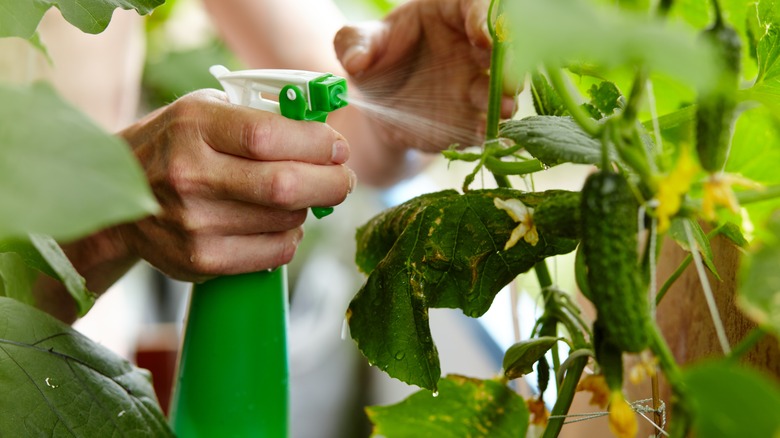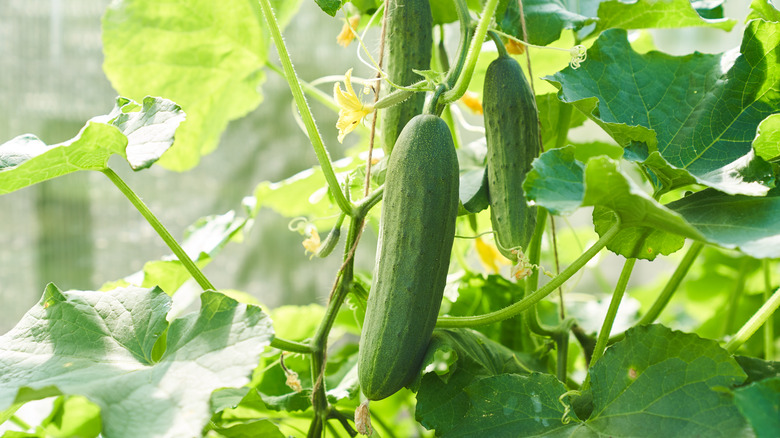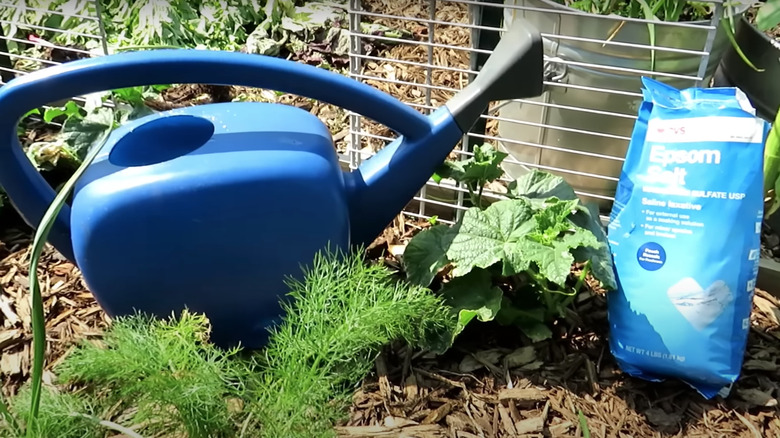Why Adding Epsom Salt Will Help Your Cucumbers Thrive
If you're looking for an easy vegetable to add to your garden, cucumbers are the way to go. They're fast to grow and will leave you with piles of cucumbers by the end of the season. Although, if you really want a bountiful harvest this year, you should give your plants Epsom salt. The added magnesium sulfate supplements the soil so your cucumbers grow faster and stronger while producing more fruit.
When caring for a cucumber plant, there are only a few things you need to remember. There are many varieties, each with their own minor differences. However, they all fit into two groups. You can either grow a vining cucumber plant or a bush. What sets them apart is that the vining varieties will give you more fruit, while the latter is better for growing in a pot or small garden. Start by planting your cucumber seedlings in full sun with well-draining soil, and provide at least 1 inch of water every week. They'll need fertilizer as well until flowers appear. That's when cucumbers will start growing. Once they're large enough, trim the fruit from the stem with clippers so you don't damage the foliage. If you notice your plant is slowing down the number of cucumbers it's producing, it can benefit from adding Epsom salt to the soil.
Boost growth and fruit production
Epsom salt is beneficial to cucumber plants because of the chemical compound it's made from. It includes magnesium and sulfur, which make this salt great at boosting plant growth. When there is magnesium in the soil, it prompts the roots to absorb the nutrients they need, specifically nitrogen and phosphorus. Then they can take those nutrients, turn them into energy through photosynthesis, and grow plenty of healthy foliage and fruit. Since magnesium is a micronutrient, your regular fertilizer may not have enough in the formula to affect your cucumbers. That's why your garden can benefit from adding Epsom salt as well. Although you can't use it on every plant, plants like cucumbers, tomatoes, and peppers will benefit since they need more magnesium to grow to their full potential.
Epsom salt is also good for reviving plants that suffer from a sulfur deficiency. If that chemical is missing from the soil, your garden can become more susceptible to diseases. Some signs that your cucumber plant has this problem are yellowing leaves, no new growth, or small fruits. By watering with Epsom salt, you can easily replenish the sulfur so your garden can become healthy again.
Dilute the Epsom salt in water
How often you need to use Epsom salt on your cucumbers depends on why you're using it. A singular dose will do the trick if you only want healthier growth and more cucumbers to harvest. The perfect time to do it is in the middle of the growing season to ensure you'll continue to have new fruit to pick. If your plants have continued signs of deficiency, you can give them more Epsom salt four weeks later. You can stretch the frequency to five weeks if your cucumbers are in a pot or six weeks if they're planted in a large garden. Be careful not to use Epsom salt too often because it can potentially kill your plant.
There are multiple ways to give your cucumber plants Epsom salt. The most popular method is to mix ½ a tablespoon of Epsom salt with half a gallon of water and pour it into a watering can after giving it a good stir. Then, water your plants like you usually do. Another way is to pour a mixture of 2 tablespoons of Epsom salt with a gallon of water, transfer it into a spray bottle, and apply it over your plant's foliage. This method is beneficial for growth since it allows the magnesium and sulfur to absorb straight into the leaves instead of the roots. Don't forget to give them fresh water as well.


